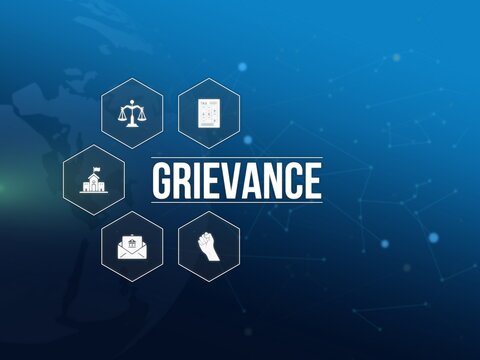
Grievance redressal in colleges refers to the process of addressing and resolving complaints, concerns, or issues raised by students, faculty, staff, or other stakeholders within the college community. Establishing an effective grievance redressal mechanism is crucial for promoting transparency, accountability, and fairness, as well as for maintaining a positive and supportive learning and working environment. Here are some key aspects of grievance redressal in colleges:
- Policy and Procedures: Colleges typically have established policies and procedures in place to address grievances. These policies outline the types of grievances that can be raised, the process for filing a complaint, and the steps involved in resolving the grievance. It's essential for colleges to ensure that these policies are clearly communicated to all members of the college community and easily accessible.
- Designated Authority: Colleges appoint a designated authority or committee responsible for overseeing the grievance redressal process. This authority may consist of faculty members, administrators, and/or student representatives who are trained in handling grievances impartially and confidentially.
- Channels for Filing Complaints: Colleges provide multiple channels through which individuals can file grievances, including in-person meetings, email, online forms, or dedicated grievance redressal portals. This ensures that complainants have options to choose the most convenient and accessible method for them.
- Confidentiality and Anonymity: Colleges prioritize maintaining the confidentiality and anonymity of individuals who file grievances to encourage open and honest communication without fear of retaliation or stigma. Confidentiality also helps protect the privacy rights of all parties involved in the grievance process.
- Timely Resolution: Colleges are committed to resolving grievances in a timely manner to prevent escalation and minimize disruptions to the learning or working environment. They establish clear timelines for each stage of the grievance redressal process and strive to adhere to these timelines as closely as possible.
- Fair and Impartial Investigation: When investigating grievances, colleges ensure that the process is fair, impartial, and conducted with due diligence. This may involve gathering relevant evidence, interviewing all parties involved, and providing opportunities for them to present their perspectives and evidence.
- Mediation and Conflict Resolution: In some cases, colleges may offer mediation or other forms of alternative dispute resolution to facilitate the resolution of grievances amicably and avoid formal disciplinary actions. Trained mediators help facilitate constructive dialogue and negotiation between the parties involved to reach a mutually acceptable solution.
